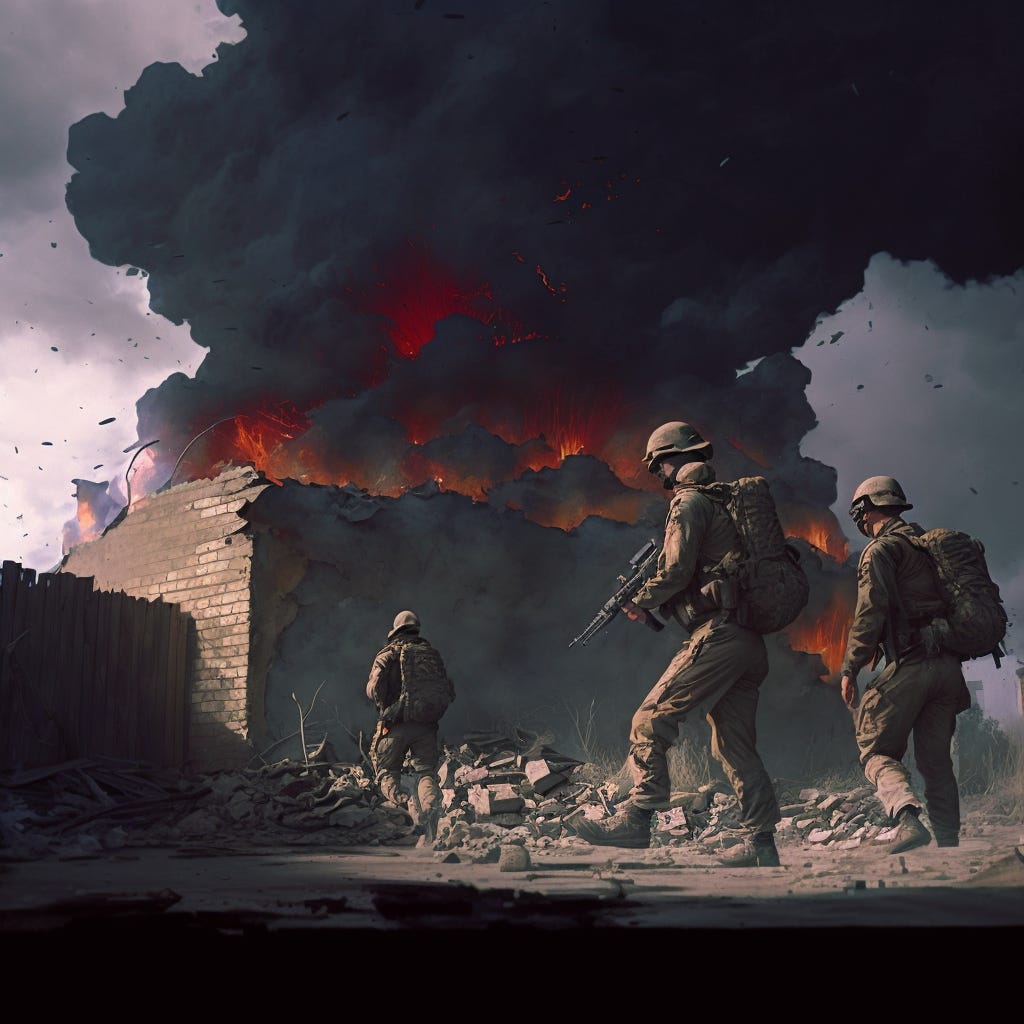Don't talk about it
Why common advice given to veterans with PTSD is wrong
I just finished rereading my official VA 100% Total and Permanent disability letter. For maybe the 100th time. The Internet forums all advise that veterans should not talk about achieving this status because of human nature, blah, blah, blah. That advice goes against basic psychology. You cannot process what happened if you keep it to yourself. Keeping it to yourself isn’t mentally healthy.
I’m going to discuss my status with an end goal in mind: positive change. I am a fortunate, totally permanently disabled veteran. Even with my “flat affect” and 70% rating for PTSD, I have somehow managed to navigate the badlands of VA bureaucracy hell in only a decade. I had a lot of help along the way. If you are a vet who is struggling, please, please click on the preceding link.
Here’s a snapshot of how the VA disability process works.
You realize something is wrong with you. This could happen anywhere from during your combat deployment up to the moment you have a final realization on your deathbed. Mine happened in 2013, seven years after I came back from Baghdad alive, but not the person I used to be.
You start to try and figure out how to ask for help. This is retarded by the fact that something is wrong with you. Or many things are wrong with you. You may have undiagnosed depression or any other DSM-V diagnosis. Hell, you may have every DSM-V diagnosis.
If you are very lucky, you’re not in a haze caused by self-medicating. Alcohol is the most common haze inducer but is generally accompanied by other drug problems. Results vary. I never fully fell off a cliff because I have a rational, logical mind and damn well intend to die on my own terms. Sobriety as I go into the final darkness. I drink to numb when I need that, but only in careful, measured doses. Sometimes, I have tried cannabis, but that generally results in more anxiety than relaxation. The point is I self-medicate extremely cautiously. Many other veterans with PTSD do not, cannot, or will not.
If you’re not fortunate, asking for help does not go well or never happens. The VA is a cumbersome bureaucracy, and many veterans give up in disgust because of that fact. To have my disabilities evaluated, I have attended dozens of doctor’s appointments, re-filed claims multiple times, and spent thousands of hours reviewing my medical files and highlighting treatment records proving my claims are related to my military service. And then waiting months to years for someone I’ll never meet to decide if going to war damaged me using a complex formula that is silly and degrading.
People in the last category often end up taking their own lives through a variety of methods. The statistics are sobering. Since Sept 11, 2001, 7,052 service members have died during hostilities (and many more contractors and foreign nationals). In that same period, 30,177 combat veterans ended their own lives.
If you know someone suffering because they volunteered to serve in the United States armed forces, don’t thank them for their service. Instead, gently ask them if they are taking advantage of the benefits they have earned. Send them my way if they say no or ask what entitlements. I will do everything I can to help them navigate the process.
Veterans who find this post, please, find people you can trust and talk about your lived experiences. Pretending war did not change you or cause you to drastically change from who you were before is a recipe for bad things to happen and keep happening in your life.





You've fought a war on the foreign front, and a different battle on the domestic front.
Now that your student loan and disability issues have been resolved, how do you approach your life?
Are you focused on helping others, embodying your role as a writer, setting goals for the next chapter of your life, or is navigating daily life a continuing (but less fraught) struggle?
Perhaps I'm asking (for those still battling) what is on the 'other side'? The answer(s) might help those still navigating the obstacles that you've overcome.
I wish the like/heart icon thing was more of a symbol of support. How can we "like" 30,000 service members commiting suicide?
I applaud your discussion of this reality. I condemn the society that just treats Vets as collateral damage for bullshit political mistakes.